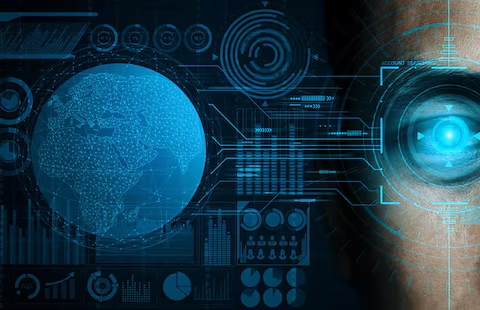Introduction
Artificial intelligence (AI) is a transformative force reshaping many sectors and education is no exception. AI technologies have been adopted widely, from designing personalized learning pathways to optimizing administrative functions, making them integral to modern education systems. For instance, solutions like an example AI content detector demonstrate how AI enhances educational resources by providing tools for analyzing content originality or detecting potential misuse of AI-generated material. This article thoroughly examines the various aspects of AI in education, highlighting its impact and innovations that transform teaching and learning paradigms.
As technology advances, educational systems worldwide face unprecedented opportunities for growth and adaptation. With AI’s integration, academic institutions can harness data and analytics to improve education’s quality, accessibility, and customization. They can tailor learning experiences to individual student needs and bridge the gap between traditional teaching methods and modern educational demands.
AI in Education
AI in education has transitioned from a futuristic idea to a vital component of contemporary educational practices. It includes various tools and systems to improve educational processes by automating repetitive tasks, analyzing intricate data sets, and customizing the learning experience for individual students. This evolution fosters an interactive educational framework that moves from a uniform approach to a more tailored experience. Educators can utilize AI to discern the distinct needs of students and adjust their teaching methods accordingly, thereby enhancing student engagement and knowledge retention.
AI’s Benefits in the Classroom
Integrating AI in classrooms brings about many benefits, particularly in customizing learning experiences to align with the standards and aspirations of each student. AI systems can effectively evaluate individual students’ learning patterns, pinpoint their strengths and weaknesses, and adjust educational materials to enhance learning results. Personalized learning such as this can boost student motivation and encourage a deeper understanding of the subject. Beyond this, AI offers platforms for instant feedback, an invaluable resource for students who can make timely corrections, facilitating a learning environment that is constantly evolving. As discussed in the context of Artificial Intelligence in Education, these capabilities make AI essential for enhancing traditional teaching methods and improving students’ overall educational experiences.
Challenges Faced in AI Implementation
The integration of AI in educational environments, while promising, faces numerous challenges that must be acknowledged. One of the main challenges faced is financial constraints, which considerably impede multiple institutions, as the costs related to the development, functioning, and upkeep of AI systems frequently surpass the limits of restricted budgets. Additionally, the proliferation of AI gives rise to indispensable conversations about student data privacy and security, requiring comprehensive measures to protect sensitive information against breaches or misuse. Navigating these challenges necessitates a careful balance of technology adoption and the implementation of rigorous data protection protocols. These security concerns are critical as they underpin trust in AI technologies used within educational domains.
AI Tools Enhancing Learning Experiences
The advent of AI-powered educational tools has introduced a suite of applications designed to enrich the learning experience. Adaptive learning platforms represent a significant innovation, continuously adjusting the difficulty of academic content to suit the proficiency level of individual learners, ensuring that the material is challenging but not frustrating. Intelligent tutoring systems provide personalized tutoring, guiding students through complex topics with tailored support and additional resources where necessary. As AI-driven tools become more sophisticated, they offer unprecedented support for educators while fostering an engaging, dynamic, and student-centered learning environment.
Case Studies of AI in Education
Practical examples of AI making a tangible difference are visible in various educational institutions worldwide, providing compelling case studies of AI’s impact. Schools have embraced AI-driven initiatives to enhance student performance, improve information management, and effectively support teacher efforts. These implementations have revolutionized existing pedagogical models, creating opportunities for innovation in classroom environments and institutional administrational processes.
Future Prospects of AI in Learning
The promising future of AI in education envisions more profound changes to learning landscapes as technology continues to evolve at an astonishing rate. Enhanced AI capabilities are expected to further amplify educational experiences by integrating seamlessly with other developing technologies, such as virtual and augmented reality. This integration promises to create more immersive, engaging, and comprehensive learning experiences that transcend traditional classroom boundaries. As AI continues to develop, its growing presence in educational settings is set to redefine how teaching, learning, and even administration are perceived and executed.
Ethical Considerations
With the increasing implementation of AI in educational contexts, ethical considerations demand thoughtful attention and action. Concerns about bias within AI systems, which could unconsciously propagate stereotypes or inequalities, and securing student data are paramount to ensuring that AI serves a fair and equitable purpose in education. Establishing policies around transparency and algorithmic accountability is essential to foster trust and protect all stakeholders engaged with AI technologies. Addressing these ethical facets helps ensure that the widespread adoption of AI in education proceeds responsibly and beneficially.
Conclusion
The advent of AI in education signifies an era of remarkable evolution in teaching strategies and learning methodologies. When paired with ethical considerations and responsible usage, AI can unlock new dimensions in educational environments that are more inclusive, adaptive, and reflective of individual learning needs. As technology transforms, the paramount challenge rests in steering these advancements to augment educational inclusivity and engagement, ensuring that AI technology’s benefits are harnessed broadly and equitably across all learning spectrums.
Stay in touch to get more updates & news on Essential Tribune!








